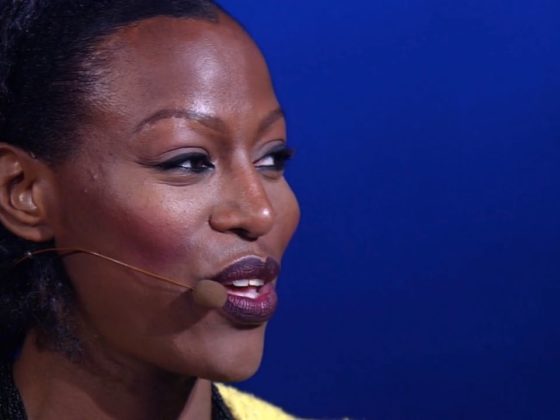IF YOU’RE A FREQUENT TRAVELER, you know that “where are you from” is a question second only to “what’s your name?” and answering it is like peeling an onion — it’s long, arduous and usually pointless. But Author Taiye Selasi offers us an incredibly simple new way of creating meaningful connections in her TED Talk: “Don’t ask me where I’m from. Ask where I’m a local.”

Selasi is a writer and photographer of Ghanaian and Nigerian descent, born in London and raised in Boston, who now lives in Rome and Berlin. In her TED Talk, she explains why “where are you from?” boxes us into a stereotyped group and prevents us from getting to know each other. Instead, we ought to define ourselves beyond the idea of the state.
Our country of origin and the image of what we should look like based on it do not always align. Every time my white friend George tells someone that he’s from Kenya, they immediately dismiss it as a joke and ask him to prove it. If you ran into George on the street, you wouldn’t think twice about categorizing him as the average Englishman. You would never know that he speaks perfect Swahili and is the human version of an African encyclopedia.
We aren’t “multinational.” We aren’t even “national,” says Selasi, because it isn’t right for us as unique characters to be bundled together and defined by the idea of a geographical state. During our lifetime, we’ve already seen a lot of countries appear and disappear — remember Czechoslovakia? And if geographical climate changes so quickly, then how can our identity be based on it? I personally do business like an American, cook like a Bulgarian, party like a Spaniard and drink like a Brit.That doesn’t make me multinational, I’ve just adopted various traits during my travels, making my birthplace completely irrelevant.
We are more than our nationality.
We belong to a place based on the experiences we’ve collected, not our nationality, and though we strive to encourage acceptance, the country our passport was issued in is often a basis for discrimination — think of name-based racial profiling at airports. Asking where one’s a local, on the other hand, opens our eyes to our similarities.
I didn’t choose to be born in Bulgaria but I choose to live in Spain. Sure, I like Bulgarian cuisine and hiking in Vitosha, but I absolutely love Spain’s Costa Brava and late night flamenco shows, I would die for Manchego cheese, and I am obsessed with Salvador Dali. We should connect based on our passions, not judge each other based on superficial prejudice.
So the next time you want to really get to know a traveler, ask where he or she is a local. See what passions you share and what you can learn from each other’s experiences. Don’t stereotype them as rude, cheese-loving assholes for saying they are French, or start maniacally waving your arms at them because you found out they are from Italy (I admit, I’ve been guilty on that account in the past). Change the way you ask this simple question and you’ll be able to build a lot more genuine relationship.